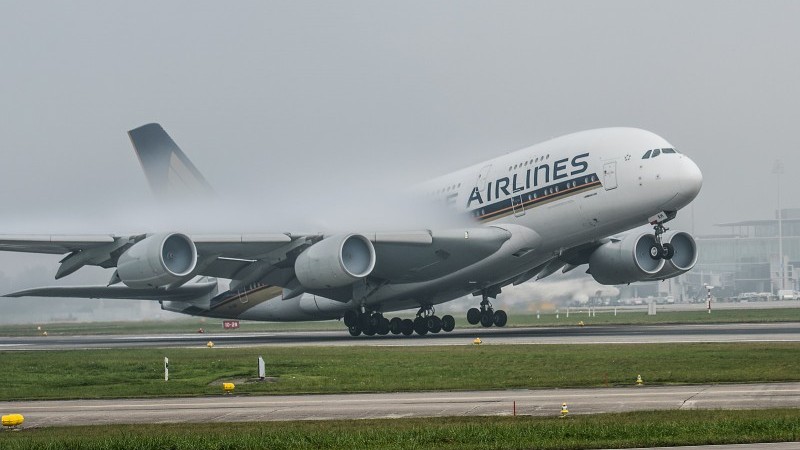Countries are expected to finalise a climate deal for airlines at the International Civil Aviation Organization Assembly in Montreal this week, but what will it look like?
The centrepiece is a carbon market to offset any growth in the sector’s greenhouse gas emissions from 2020. As with the Paris talks, there is a tension between the level of climate ambition and fairness to developing countries.
China is playing both sides. In a joint statement with the US last month, it said it expected to take part in the voluntary first phase of the scheme.
Yet it submitted a position paper with India and Russia complaining the draft text would suppress growing air transport markets in developing countries. The market-based measure should be only “one of the possible options” to curb emissions next decade, they said.
Sources at the summit told Climate Home the chair of negotiations is holding bilaterals with the hold-outs, to figure out their red lines. Expect a new text on Monday or Tuesday.
No sign of ✈️ #climate agreement at #ICAOA39 today. Talks have gone underground, new text maybe Mon/Tues. #SDGs on the agenda shortly though
— James Beard (@JamesBeardWWF) October 1, 2016
“False solution”
Some green groups will be unhappy whatever is agreed. Nearly a hundred NGOs including Greenpeace, Friends of the Earth and Third World Network, have denounced the proposals as inadequate to meet the Paris Agreement goal of holding global warming to 2C or 1.5C.
They say carbon offsetting is a “false solution” that only shifts the problem. See this video from forests campaign group Fern:
Others like WWF and WRI are engaging with the ICAO talks to push for more environmental safeguards and higher participation.
Mike Halferty, transport minister of the Marshall Islands, issued a statement after initial discussions on Thursday.
“Without an effective market-based measure to reduce aviation emissions, it will be impossible to keep temperatures within 1.5C as we all agreed to do in Paris,” he said.
“We simply cannot afford to wait another three years for the aviation sector to take action, and we cannot afford anything less than what we have on the table. If we do, the droughts we experience will get more frequent; the storms more intense; and the king tides more severe.
“It is time to get this done.”
Ratification tracker
Meanwhile, the Paris Agreement is so close to entering into force, you can almost taste it.
India filed its ratification documents in New York on Sunday, with the EU set to follow shortly after completing certain parliamentary formalities.
Gandhiji believed in a world worthy of our children. In joining the Paris Agreement, @narendramodi & the Indian people carry on that legacy.
— President Obama (@POTUS44) October 2, 2016
After the EU joins the deal, nearly two thirds of global greenhouse gas emissions will be covered, surging over the 55% threshold. It means the pact will be international law when the next round of climate talks start in Marrakesh next month.
Time for action
Sandeep Chachra, executive director of Action Aid India, said New Delhi must make sure the next steps reflect fairness.
“This year India and its citizens have been on the front line of climate change. Today’s efforts to fast-track the entry into force of the Paris Agreement is a clear indication that India both wants and needs urgent action at home, and internationally,” he said.
“India now has a vital role to play in ensuring that its hard-won inclusion of climate justice in the Agreement becomes a key outcome and not just an empty phrase.”
India's PR, @AkbaruddinIndia hands over instrument of ratification of #ParisAgreement to the Office of Legal Affairs, @UN #climatechange pic.twitter.com/1Yw9CLhNfM
— Indian Diplomacy (@IndianDiplomacy) October 2, 2016
The EU was urged to up its game. “The unprecedented move by the international community to ratify the Paris Agreement has taught the EU an important lesson; that it can no longer take for granted to be seen as a leader and that it risks lagging behind if not acting fast and boldly enough,” said Wendel Trio, director at Climate Action Network Europe.
“There are two immediate steps that the EU must now take to prove that being a party to the Agreement when it enters into force is not only a political show-off. First of all, all member states should ratify the Paris Agreement by the end of this year, so that the objectives of the Paris Agreement can be rapidly translated into national action. Secondly, the EU must urgently – and by 2018 the latest – review its inadequate 2030 target, as it is out of sync with the objectives of the Paris Agreement.”
Is this a UN record?
The race to ratify Paris has been speedier than most expected. I asked the UN’s treaty chief Santiago Villalpando if it was the fastest ever.
Not quite, it turns out. The UN Charter itself entered into force only three months after it was adopted. And given that different treaties have different criteria for taking effect, Villalpando suggested it would be misleading to make direct comparisons.
“Having said all this,” he added by email, “there is no doubt that the possible entry into force of the Paris Agreement within 2016 is extraordinarily quick and enormously promising, demonstrating the commitment of the international community to the cause of combatting climate change.”
Coming to cinemas on 21 October
Leonardo DiCaprio travels to Indonesia, China, the Pacific Islands and interviews president Barack Obama at the White House in a new film on the growing dangers posed by climate change. Here’s a taster…
